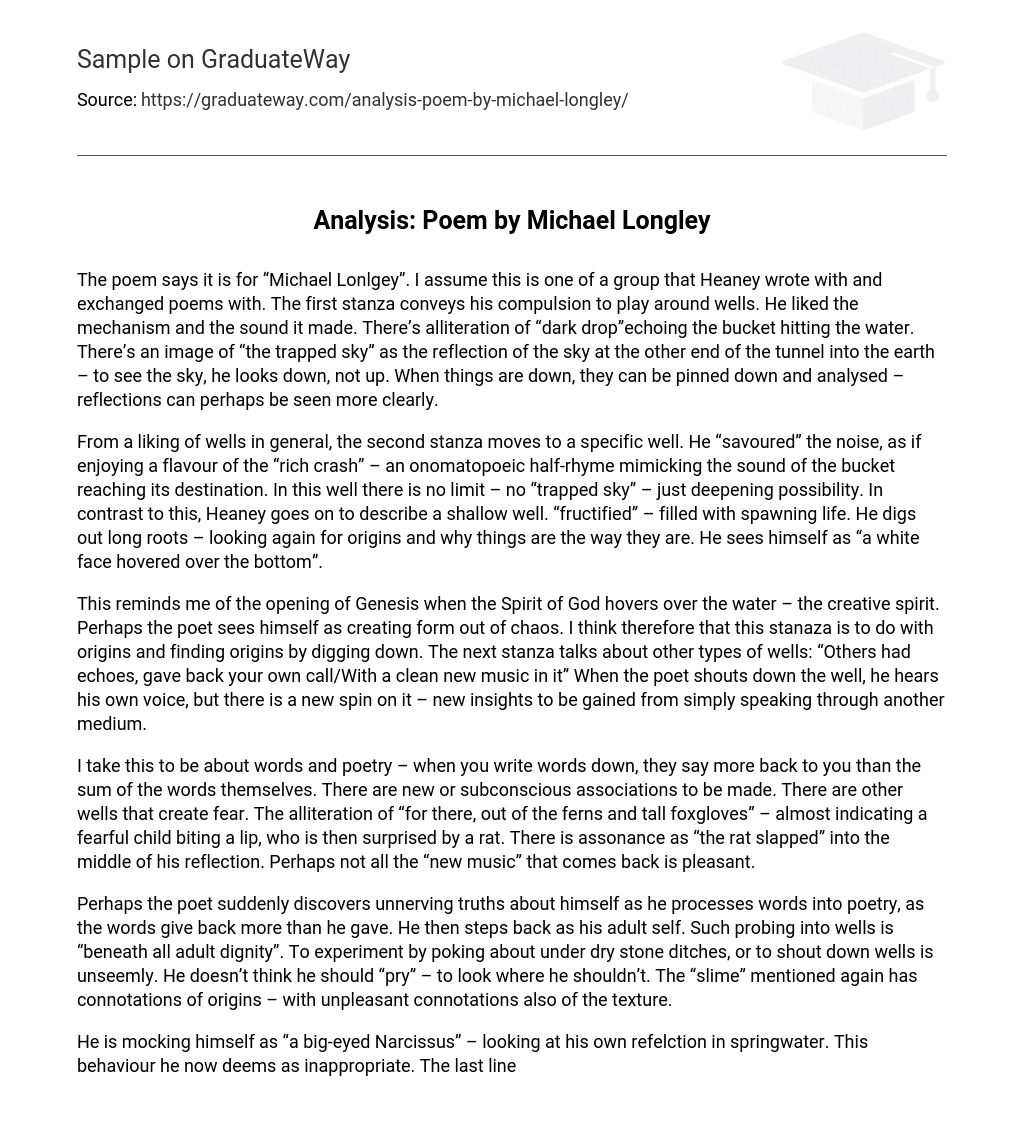The poem says it is for “Michael Lonlgey”. I assume this is one of a group that Heaney wrote with and exchanged poems with. The first stanza conveys his compulsion to play around wells. He liked the mechanism and the sound it made. There’s alliteration of “dark drop”echoing the bucket hitting the water. There’s an image of “the trapped sky” as the reflection of the sky at the other end of the tunnel into the earth – to see the sky, he looks down, not up. When things are down, they can be pinned down and analysed – reflections can perhaps be seen more clearly.
From a liking of wells in general, the second stanza moves to a specific well. He “savoured” the noise, as if enjoying a flavour of the “rich crash” – an onomatopoeic half-rhyme mimicking the sound of the bucket reaching its destination. In this well there is no limit – no “trapped sky” – just deepening possibility. In contrast to this, Heaney goes on to describe a shallow well. “fructified” – filled with spawning life. He digs out long roots – looking again for origins and why things are the way they are. He sees himself as “a white face hovered over the bottom”.
This reminds me of the opening of Genesis when the Spirit of God hovers over the water – the creative spirit. Perhaps the poet sees himself as creating form out of chaos. I think therefore that this stanaza is to do with origins and finding origins by digging down. The next stanza talks about other types of wells: “Others had echoes, gave back your own call/With a clean new music in it” When the poet shouts down the well, he hears his own voice, but there is a new spin on it – new insights to be gained from simply speaking through another medium.
I take this to be about words and poetry – when you write words down, they say more back to you than the sum of the words themselves. There are new or subconscious associations to be made. There are other wells that create fear. The alliteration of “for there, out of the ferns and tall foxgloves” – almost indicating a fearful child biting a lip, who is then surprised by a rat. There is assonance as “the rat slapped” into the middle of his reflection. Perhaps not all the “new music” that comes back is pleasant.
Perhaps the poet suddenly discovers unnerving truths about himself as he processes words into poetry, as the words give back more than he gave. He then steps back as his adult self. Such probing into wells is “beneath all adult dignity”. To experiment by poking about under dry stone ditches, or to shout down wells is unseemly. He doesn’t think he should “pry” – to look where he shouldn’t. The “slime” mentioned again has connotations of origins – with unpleasant connotations also of the texture.
He is mocking himself as “a big-eyed Narcissus” – looking at his own refelction in springwater. This behaviour he now deems as inappropriate. The last line and a half : “I rhyme/To see myself, to set the darkness going. ” So this poem gives the poets reason for writing poetry. He wants to get that surprising echo, that enlightening resonance that the wells used to give him. He now does this by rhyming and creating poetry. The words work together to capture nature, truth, the self and to search for origins.





